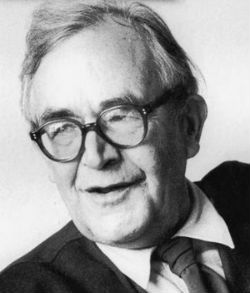Freed of All Charges:
5 Unanswerable Questions
By Neil Earle
 John Stott
John Stott“In the last twelve verses of Romans 8,” wrote the evangelical teacher John Stott, “the apostle soars to sublime heights unequalled elsewhere in the New Testament…His great Spirit-directed mind now sweeps over the whole plan and purpose of God from a past eternity to an eternity still to come, from the divine foreknowledge and predestination to the divine love from which absolutely nothing will ever be able to separate us” (The Message of Romans, page 246).
It was Pastor John Stott’s great gift to package the Bible for our easier consumption. With Stott’s masterful introduction in mind let’s look today at what Paul is getting at in Romans 8. But the book of Romans should come with a warning: “CAUTION – You are about to enter a life-changing zone! The Book of Romans can change your life.”
What do I mean?
“The Wonder of Romans”
Well, when that serious and earnest Augustinian monk Martin Luther (1483-1546) began to teach the Book of Romans to his students at Wittenberg he found in Romans 3:21-26 something he had not noticed before. There he found the answers to his frustrated yearnings for a strong assurance of salvation and a Gospel truth that had been long buried. It all began and ended with what God had done in Christ. The troubled cosmos and the troubled conscience were both remedied in God’s move in Christ (planned before the foundation of the world – Revelation 13:8) for the salvation and justification Christians accept by faith.
 Martin Luther
Martin LutherLuther saw it clearly: The initiative was God’s not a host of religious rules and rituals. Said Luther: “Now I felt I had been reborn altogether and had entered Paradise.”
The Protestant Reformation of the Church was a result.
Switch to London in 1738. A failed Anglican missionary to the American Colonies, the Reverend John Wesley, went along to a Moravian preaching service at Aldersgate Street where Luther’s “Preface to Romans” was being read. Having earlier that day attended a service at Westminster Abbey where the sincere confession of human inadequacy in Psalm 130 had been sung by the choir, Wesley was ready to hear Luther’s sublime explanation of the “righteousness which comes by faith, the passive righteousness of God that does not depend on human works.” About a quarter to nine in the evening, the young cleric felt his heart strangely warmed by the words of Romans and knew he had been mercifully rescued from what Romans 8 calls the “law of sin and death.”
Once again the initiative was God’s. The Wesleyan Revival was the result and the evangelical movement was cemented.
 Karl Barth
Karl BarthCrisis Theology
One more story. During World War One (1914-1918) a young Swiss pastor near the French border could almost hear the guns of the Great War booming in from the Western Front. Karl Barth realized that the Liberal Theology of man’s increasing perfection he had been taught at world-famous Tubingen was failing the test of the stormy new Century. Rather than beginning with man’s search for God, Barth saw in Paul’s letter to the Romans a view of humanity that began with God’s powerful word to man. Romans 1:16 made an impression: “For I am not ashamed of the Gospel of Christ, for it is the power of God to salvation for everyone who believes.”
Barth saw little of that power evident in modern European culture. Human beings had their own ideas of God and his interests when what they needed was to hear from God’s words to them. Human beings could do nothing for themselves apart from God’s Word of grace.
Barth wrote about this new Theology of Crisis for a new Age of Crisis in his first book. He called it “Der Romerbief” (1919). Said one historian: “It fell like a bombshell on the playground of the theologians.”
So, be careful I say (half-jokingly). Romans might just radically alter your life.
John Stott has masterfully reorganized Romans 8:28 to 39 for us today. The gifted teacher breaks Romans down to fifteen core principles. Here they are:
I. FIVE UNSHAKEABLE CONVICTIONS (Romans 8:28)
Stott gets all of this important teaching from one verse and he is so right! This verse reminds us that God is not always acting for our comfort, says Stott, but for our eternal good. There are so many examples of this in Scripture from Joseph being sold by his brothers to rise to Prime Minister of Egypt and Food Administrator for the Near East. “You intended to harm me but God intended it for good,” he told his once estranged brothers (Genesis 50:20). Christians from Augustine to Calvin down to today have this thought always at the back of their mind to make sense of the confusion out there, that evil is parasitic and feeds on good but good wins out in the end.
II. FIVE UNDENIABLE AFFIRMATIONS (Romans 8:29-30)
To those called and justified Paul holds out the supreme hope as compressed and embodied in five questions. The world, the flesh, the devil arrayed against Christians are far far too powerful for us to meet on our own. That is why the Five Questions that follow build on the 10 points that have gone before. Here they are:
III. FIVE UNANSWERABLE QUESTIONS (Romans 8:31-39)
We have been climbing a grand staircase with these 15 declarations, says Stott. Our confidence is not in our love for Christ which is fickle, frail and faltering but in God’s love for us, which is faithful and persevering. We are guilty in ourselves but through Christ’s atoning work we have been cleared of all the charges against us. That is Christian freedom, that is something to be thankful for, that is real Good News.